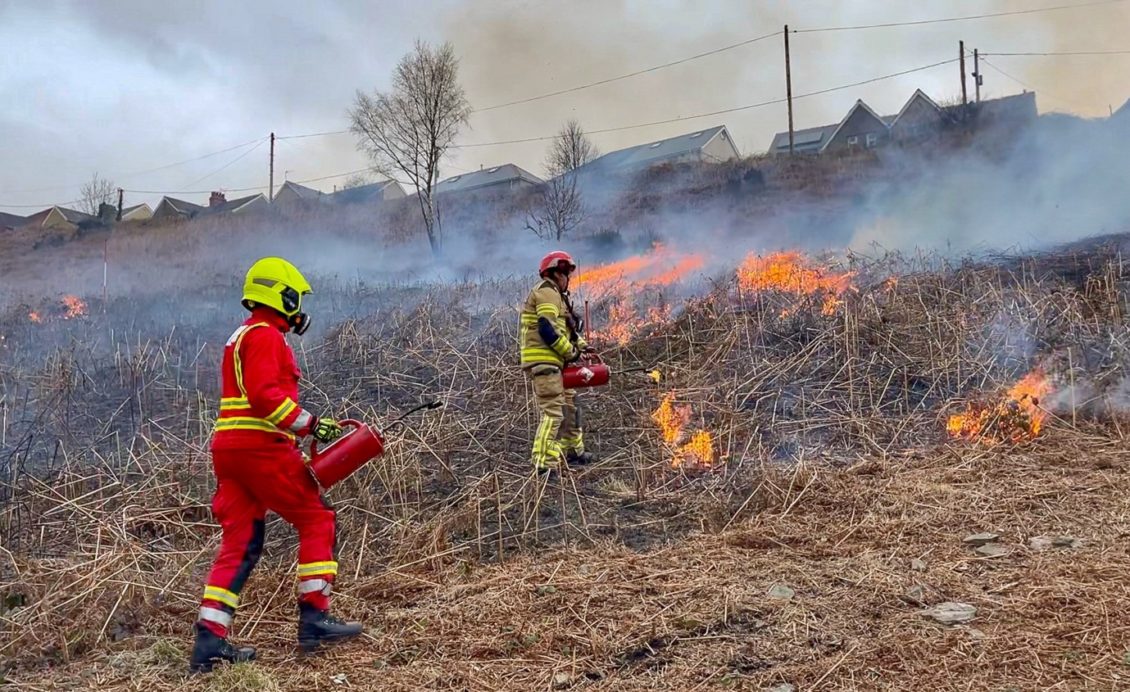With the climate crisis increasing the risk of wildfires in the UK and many other parts of northern Europe, scientists from across the world are sharing their expertise to help tackle the dangers.
Last week Swansea academics were among UK wildfire experts who warned that the record temperatures recorded across the country, along with extremely low fuel moisture conditions, had increased the chances of Britain experiencing severe wildfires. Last weekend kept UK Fire and Rescue Services exceptionally busy.
The fact that severe fires are happening further north than ever has been highlighted by the FirEUrisk consortium. Made up of partners from all over the world (research institutions, universities and private companies), the group aims to develop a unified approach to the increasing hazard, developing new tools for assessing fire danger and the vulnerability of communities and landscapes.
One of its goals is to share knowledge with countries that as yet have limited previous experience in managing extreme wildfires so they can improve their ability to prevent and react to this increased threat.
FirEUrisk co-ordinator Professor Domingos Xavier Viegas, from the University of Coimbra in Portugal, explained that in the past wildfires have not been as common or as severe in central and northern Europe as they have been in the south.
He said: “We have to prepare ourselves for fires occurring in regions where they did not occur before and becoming progressively more severe. FirEUrisk is developing guidelines, protocols and recommendations that can be adopted by central and northern European countries.
“These countries will soon require a similar organizational capacity and preparation to southern territories.
“We need to ensure that all of Europe is a safe area where citizens, in the face of extreme fires, do not have to face material or human losses.”
For example, this year, the UK experienced an unprecedented loss of houses, in France the burned area is already well over 60,000 hectares, larger than in any entire year since 2008 when satellite monitoring began, and Spain is experiencing its worst year for a quarter of a century with 352 fires and 229,645 hectares burned.
Professor Stefan Doerr, who leads Swansea University’s Centre for Wildfire Research added that “there is much to be gained by closer coordination and knowledge exchange across Europe especially in regions outside of Mediterranean Europe where more severe wildfires have been historically rare or absent. “
One ‘pilot’ area for FirEUrisk project is in South Wales where the Healthy Hillsides initiative is prioritising education and new firefighting techniques to minimise the devastation wildfires cause to the landscape, wildlife, and communities of the South Wales Valleys.








Leave a Reply
View Comments